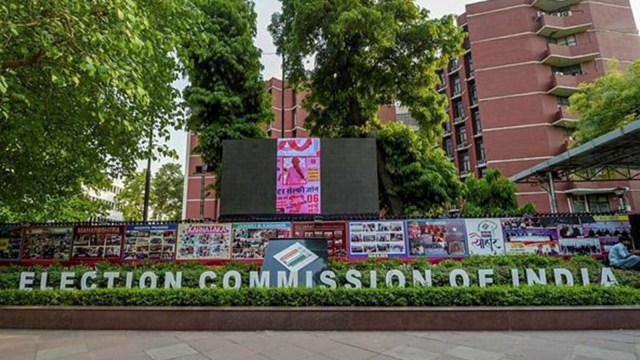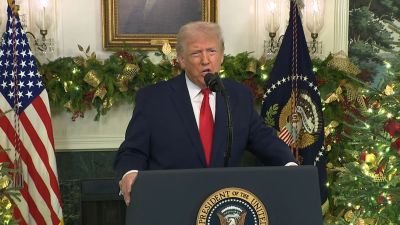These decisions were made at a high-level meeting held on Tuesday between senior officers of the ECI and the Home Ministry, Law Ministry, IT Ministry and UIDAI.

The meeting, the first one between the Commission and the Union Government this year, was attended by Home Secretary Govind Mohan; MEiTY Secretary S Krishnan; Legislative Department Secretary Rajiv Mani and UIDAI CEO Bhuvnesh Kumar.
It was held against the backdrop of the Opposition INDIA bloc parties alleging irregularities in electoral rolls in different parts of the country.
In an hour-long discussion, the ECI and government officials are learned to have discussed the pros and cons as well as the legalities associated with linking the voter database with that of Aadhaar.
Currently, the Commission, up to 2023, had collected Aadhaar details of over 66 crore voters, who had “voluntarily” offered this information. But the two databases for these 66 crore voters haven’t been linked. In other words, Aadhaar hasn’t been used to weed out duplicate entries or enable clean-up of electoral rolls.
However, going forward, the electoral watchdog will work with UIDAI to figure out how to link the two databases, at least for those voters who have voluntarily offered the information to ECI.
Story continues below this ad
While the Commission’s press statement on Tuesday’s meeting did not categorically state this, it said linking will be done in accordance with Sections 23(4), 23(5) and 23(6) of the Representation of the People Act, 1950 and that “technical consultations between UIDAI and the technical experts of ECI are to begin soon”.
Sections 23(4), 23(5) and 23(6) of the RP Act 1950 deal with the Electoral Registration Officer’s authority to request Aadhaar for voter identity verification, the process for existing voters to voluntarily submit Aadhaar numbers, and protections ensuring that no one can be denied voter registration or removed from electoral rolls for failing to provide Aadhaar information.
ExplainedHow Form 6B will change
Form 6B lacks options for electors to abstain from providing Aadhaar, offering only two choices: either provide Aadhaar or declare, “I am not able to furnish my Aadhaar because I don’t have Aadhaar number.” This will be amended but voter will have to offer an explanation why she is not providing her Aadhaar.
Further, it was also decided that Form 6B (which was introduced to collect Aadhaar numbers of voters) will be amended by the Union Law Ministry by way of a gazette notification to remove ambiguity on whether sharing this information is voluntary.
Currently, Form 6B lacks options for electors to abstain from providing Aadhaar, offering only two choices: either provide the Aadhaar number or declare, “I am not able to furnish my Aadhaar because I don’t have Aadhaar number.”
Story continues below this ad
This will be amended to remove restrictive options, but the voter will have to offer an explanation why she is not providing her 12-digit unique identity number, The Indian Express has learned.
This amendment is expected soon, before the next set of Assembly elections in Bihar later this year.
The change will be in line with ECI’s commitment before the top court (in G Niranjan Vs Election Commission of India) in September 2023 that it is looking into issuing “appropriate clarificatory changes in the forms introduced for that purpose” to ensure that voters understand the exercise is voluntary.
The decisions have been made against the backdrop of recent controversy over duplicate voters cards. Opposition party Trinamool Congress has raised concerns over identical voter card numbers assigned to citizens across different states, accusing the Election Commission of “manipulating voters’ lists to benefit the BJP”. This sentiment was recently reinforced by Opposition Leader Rahul Gandhi during a Lok Sabha session recently.
Story continues below this ad
The controversy gained momentum when TMC chief and West Bengal Chief Minister Mamata Banerjee highlighted the issue of duplicate EPIC numbers at her party’s gathering in Kolkata. Banerjee alleged that the BJP was working with the Election Commission to tamper with voter lists.
In response, the Election Commission acknowledged the problem, explaining that some state Chief Electoral Officers had incorrectly utilised alphanumeric sequences when generating EPIC numbers. The Commission clarified that identical card numbers don’t necessarily indicate fraudulent voters, as other identifying information —such as demographic details, constituency assignment, and polling station — remain distinct for each individual.
To resolve the situation, the Election Commission has committed to issuing replacement EPIC numbers to affected voters within a three-month timeframe.









